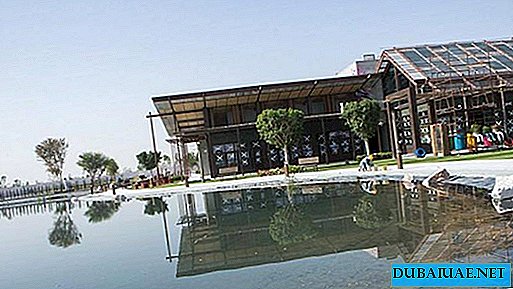 Helen Mathieu
Helen Mathieu
Legal Counsel and Notary (Canada).
Member of the Bar Association of Canada and Quebec.
The unprecedented population growth in the UAE due to visiting workers, the growing number of tourists exponentially and a huge number of international projects have caused an unprecedented boom in real estate in Dubai. The origins of this boom were laid back in 2002, when the ruler of Dubai, His Highness Sheikh Mohammed bin Rashid AlMaktum, announced that the right to own certain types of real estate in the emirate will now be granted to all investors, regardless of their citizenship. Under the basic law, ownership of real estate in the emirate of Dubai is limited and is granted only to citizens of the UAE and the Gulf countries, as well as to companies that are 100% owned by citizens of these countries. Therefore, a company registered in the Emirates, whose shareholders are foreign nationals (for example, a limited liability company - LLC, 49% of which is owned by an alien), will not be considered "local" in the sense of obtaining ownership of real estate. Foreign companies and individuals are entitled to free ownership of real estate only in certain areas.
The term "freehold", or "free ownership of real estate," is a concept that has long been used in the Emirates. A person possessing the right of free ownership of real estate is considered the absolute owner of the land and buildings to which this right applies. The owner has the right to reside, use and receive income from real estate for an unlimited period of time or until the owner transfers the ownership to another owner. the heirs of the property owner have the right to inherit the property after the death of the owner. It is quite clear that with the launch of such large-scale real estate projects as Dubai marina, emirates Hills, Jumeirah Islands, three artificial islands Palm Islands, Dubai Waterfront, Jumeirah Beach Residence, The meadows, The Springs and Arabian Ranches, the introduction of the new Real Estate Law was greeted with great expectation and interest.
So what exactly does the new Real Estate Law say? What rights are granted or, conversely, limited by the new Law? And most importantly, what does the new Law say about foreign property owners?
How to register your right?
Article 6 of the new Law states that the Dubai Land Department will henceforth be the only body that will recognize and register ownership of real estate. Prior to the introduction of the new Law when purchasing real estate, the registration of the buyer was carried out in the internal system of the respective developer. The internal system of developers has performed and continues to play the role of a valuable tool for registering real estate sales. However, in accordance with the provisions of the new Law, after the creation of the Land Department, any register and other developer databases will not be considered official sources of information.
During the transition period from the internal registration of developers to a single registration system in the Dubai Land Department, the two parties agreed that in those cases where the purchase process has been completed and the transfer of ownership has already taken place, the internal registration records in the developers system will be replaced by official records in the land department. If the property is under construction, the buyer will first be registered in the internal system of developers, and upon completion of construction and commissioning of the building, he will have to submit an application to the Land Department for registration of ownership in his name.
It is important to distinguish between the two phases of the acquisition of real estate under construction. During the first phase, when the property is under construction, the buyer does not have direct ownership of the property. At the time of completion of construction, transfer of the property to the buyer and payment of all payments regarding the value of the property, the second phase begins when the buyer becomes the full owner of the property and can apply for registration of ownership in the Land Department.
In order to be considered a full-fledged owner of real estate, it is not enough for the buyer to have one property purchase and sale agreement with a developer. The buyer must transfer the contract to the Land Department along with an application for registration of ownership in his name. If all the documents submitted are in order, the Land Department will record the ownership of the buyer in relation to this object in a single register of real estate and issue a certificate of ownership. It is this certificate that will be the document confirming the ownership of real estate.
How much is it?
When registering ownership in the Dubai Land Department, the buyer and seller must pay department fees, which currently make up 2% of the market value of real estate, but these figures are being revised and are likely to change. At the same time, the shares of the buyer and seller within 2% are determined by agreement between the parties. In addition, when transferring ownership of the property from the developer to the direct owner, a transfer fee is charged, the amount of which depends on who the property is purchased in: up to 3% for individuals and up to 1.5% for legal entities. If the property was acquired in the name of an offshore company, the transfer of ownership can be carried out by selling the offshore company together with its property. in fact, with this type of transfer, it is not a sale of real estate, but an offshore company owning real estate, which thereby reduces the size of the transfer fee.
How to bequeath real estate?
When buying real estate in the Emirates, for example, in Dubai, many investors are asking questions about the inheritance of real estate within the framework of Sharia law. In the event of death, UAE law is applied to the wills of foreign citizens regarding real estate in the Emirates, while the will only extends to a share of 30% of this property. in spite of the fact that foreign citizens have the right to apply the legislation of their country, it is highly likely that the property will not pass into full possession of the spouse of the deceased, since the Sharia law distributes property among all blood relatives. In order for real estate to go to those people whom the owner wanted to see in the heirs, an option could be to create an offshore company, where the spouses will act as directors. In the event of the death of one of the spouses, the shares in the company will be transferred to the second spouse and other heirs. In other words, in this way an internal transfer of shares in the company is carried out, which avoids the Sharia law on inheritance in relation to real estate. For more information on the legal aspects related to the acquisition of real estate in the UAE, please contact the Helene mathieu Legal Consultants legal advice.











